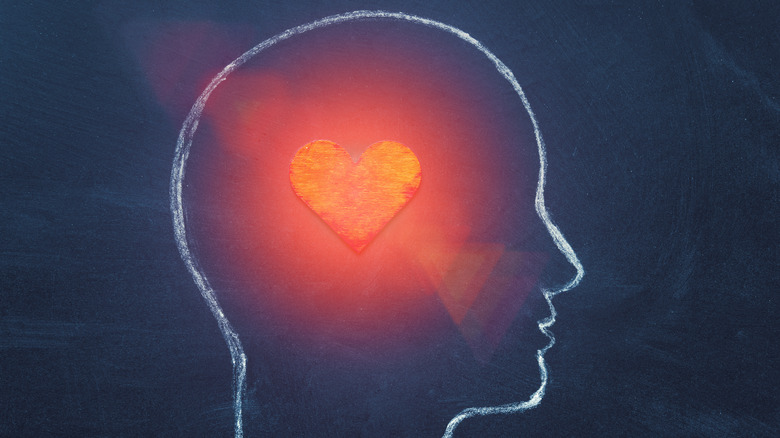What Happens To Your Brain When You're Having Sex?
When you and your partner are getting hot and heavy, chances are you're thinking about other body parts rather than your brain. But while you're both getting sweaty under the sheets, your brain is also getting in on the action big time. This may be why we refer to great sex as "mind-blowing."
Having sex also triggers "sex brain" where parts of your brain engage more while other parts slow down, according to Metro UK. Good luck trying to make any decisions or think about the consequences of your sexual encounter while in sex brain mode — your brain is experiencing too much pleasure to allow for clear thinking.
"When we have sex a flood of hormones and neurotransmitters are released throughout our bodies, affecting the reward centres of the brain," Dr. Shirin Lakhani, intimate health specialist and owner of Elite Aesthetics in Kent, tells Metro.co.uk.
However, if you've recently experienced a high level of stress, the hormones in the brain can only do so much to keep the focus on pleasure. If your anxiety is high enough, it could have the power to ruin the party and get your brain back into active mode again.
How hormones work during sex
According to The Healthy, while researchers continue to investigate the topic, there is enough data available to confirm that the neurochemicals the brain releases have specific effects on the body during sex.
One of these neourochemicals, dopamine, is what gives the feeling of desire, pleasure and reward, Jason Krellman, Ph.D., a neuropsychologist and assistant professor of neuropsychology at Columbia University Medical Center, tells The Healthy. Another happy hormone the brain releases during sex, oxytocin, increases during arousal and is also believed to have pain-relieving effects, according to Krellman. The release of increased amounts of serotonin during sex tends to boost happiness and overall mood, and may also improve memory. Post-orgasm, the brain then releases vasopressin, a hormone that is believed to promote sleepiness. Some of the data suggests that vasopressin affects men and women differently, and so there may be a biological reason for the often stereotyped post-coital pattern of the man falling a sleep immediately while the woman seeks to emotionally connect, Nicole Prause, Ph.D. tells The Healthy. After sex, the brain also releases the hormone prolactin, which mitigates the pleasurable effects of the dopamine, potentially leaving some people to feel a sense of sadness.
The chemicals the brain releases during and after sex all have an evolutionary purpose that support your getting the most out the experience and encourage the survival of the species, according to Krellman. But that probably won't be what's top of mind when you're having sex.


